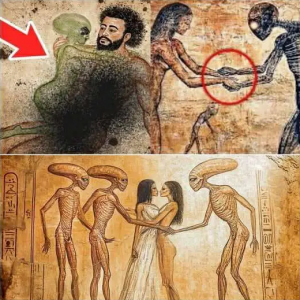The Biblical Perspective on Age Differences Between Couples: Love Beyond Numbers
When it comes to relationships, few topics spark as much discussion as the age difference between partners.
Some see it as a sign of imbalance, while others believe love knows no bounds. But what does the Bible actually say about age gaps in relationships—and how should modern believers view them?
What the Bible Says About Age Differences
Interestingly, Scripture never sets a specific rule or “acceptable” number when it comes to the age gap between spouses.
Instead, it focuses on the spiritual and emotional foundation of marriage. Biblical teachings emphasize love, faithfulness, mutual respect, and the covenant before God—not the number of years separating two people.

From Adam and Eve to Abraham and Sarah, and even Boaz and Ruth, the Bible highlights relationships built on purpose and divine connection.
Boaz was older than Ruth, yet their marriage is remembered as one of faith, kindness, and redemption. What mattered most was the alignment of their hearts and God’s plan for their union.
Age Difference in the Modern World
In today’s society, relationships come in many forms—some couples are close in age, while others span decades.
What often matters most is how they navigate differences in experience, lifestyle, and goals.
Psychologists note that relationships with larger age gaps can offer unique advantages: the older partner may bring stability and wisdom, while the younger contributes energy, curiosity, and a fresh outlook. Together, they can build a balance that encourages growth for both.
Of course, challenges can arise when partners are at different life stages—especially regarding family planning, careers, or long-term goals.
Honest communication, shared faith, and mutual respect become essential in bridging those differences.
Breaking Society’s Double Standards
Historically, large age gaps were often accepted or even expected—especially when older partners provided security and resources.
But in today’s world, love has become more about equality and emotional connection than practicality.
Still, society often judges these relationships differently depending on gender.
Men with younger partners are frequently praised, while women with younger partners face unfair criticism. Such double standards overlook what truly matters: the quality and sincerity of the bond.
Faith, Maturity, and True Connection
From a biblical perspective, spiritual maturity matters far more than chronological age.
A relationship built on trust, communication, and shared values will always stand stronger than one based on appearances or social approval.
Even research supports this: while couples closer in age may face fewer statistical challenges, it’s emotional and spiritual compatibility that determines lasting success.
Lessons from Scripture and Life
The Bible reminds believers that love is patient, kind, and enduring (1 Corinthians 13:4–7). Those virtues transcend time and age.
Couples who keep faith at the center of their relationship often find that their differences—whether in years, personality, or background—become strengths rather than obstacles.
Final Reflection
Age differences may draw attention, but they do not define the worth or success of a relationship.
The true measure lies in how two people honor one another, seek God’s guidance, and walk together through life’s seasons.
In the end, love—when rooted in faith—doesn’t count birthdays. It counts blessings. ❤️




























